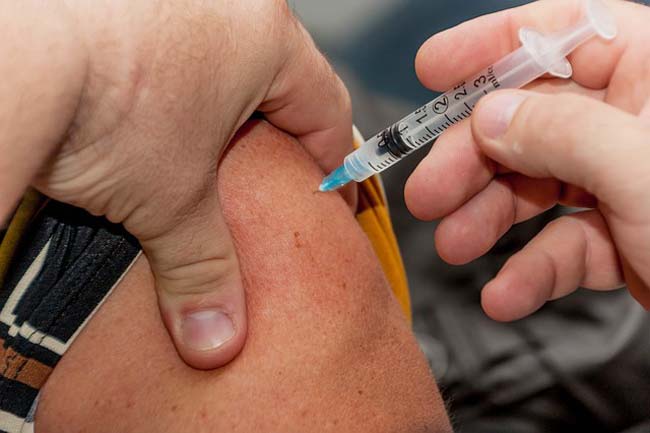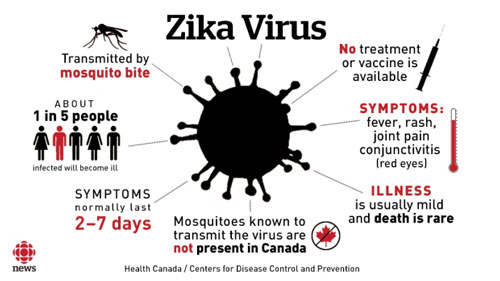Thailand is a place of rich culture, delicious food, kind and welcoming people and unbelievably gorgeous vistas, which doesn’t sound like a threatening place by any means.
But coming from the West, it is also a place where you may be exposed to disease.
This is the unglamorous side of travel, but one that every traveller must not ignore.
There is a multitude of viruses and diseases that Westerns may have never heard of and are rarely vaccinated against.
While the risk of disease is real, recognize that alarmism is, too.
Many Western doctors are guilty of ‘tick box’ disease, an unfortunate circumstance where medical practitioners scare patients into getting every single vaccination in the book, which is not only unnecessary, but also extremely costly.
The majority of people travel to and from Thailand without a problem and the most you're likely to encounter is a cold, traveler's cough – as they call it – or food poisoning from a dodgy street food stall.
But as with most things in life, it's better to be safe than sorry, and that's why I've written this guide.
If you’re planning a trip to the Land of Smiles, I've compiled all the information you need on vaccination recommendations to ensure that your time in the Kingdom is without the threat of illness, plus some general health tips so you're fully clued up.

What The NHS & CDC Say
If you’re headed over from the UK or the US, here are the vaccinations that both the CDC (Centers for Disease Control and Prevention in the US) and the NHS recommend for Thailand:
- Measles-mumps-rubella
- Diphtheria-tetanus-pertussis
- Varicella
- Polio
- Hepatitis A
- Typhoid
- Cholera
- Hepatitis B
- Japanese encephalitis
- Malaria
- Rabies
- Yellow fever
*Note: MMR and Typhoid vaccines are typically scheduled early in childhood, so check your records with your doctor and make sure you are protected.
That’s a a big list. I know. Luckily, most travelers only need a handful of these vaccines based on how long they’re staying and where in Thailand they are visiting.
The National Health Service in the UK generally offers the following vaccinations for free:
- Cholera
- Diphtheria
- Polio
- Tetanus
- Hepatitis A
- And occasionally Hepatitis B and typhoid
Those interested in other vaccinations will have to pay. In the US, most travel vaccinations represent an out of pocket cost- some of which may be covered by an insurance policy.

Necessary Vaccinations for Thailand
As previously mentioned, most travelers don’t receive all vaccinations for Thailand, as that would be quite an expense.
But evaluating what is necessary can be difficult, not to mention nerve wracking. So let's break down what you actually need:
1. Tetanus
Tetanus is an absolute must-have for all travelers. It is not spread through human contact, but through bacteria in soil, manure and even in dust. The bacteria can find its way into the body through small cuts or scrapes.
Cost (USD): The price of a tetanus vaccination in the US ranges from $10-$100, depending on your insurance and if you get tetanus as a combination vaccine.
Why you need it: Tetanus vaccines are a good idea. Tetanus is fairly easy to contract because of its ease of transmission. It is almost impossible to monitor all of the environmental factors associated with travel, so the tetanus vaccine will both protect you and put your mind at ease.
Actual risk: Those who contract the disease are prone to lockjaw or a tightening in the muscles in the jaw.
In addition, those infected may have seizures, fever, increased heart rate, muscle pain and headache. Long term issues include fractures, blockage of lungs by a blood clot, pneumonia and prolonged, serious breathing issues.
– When to get vaccinated: Get vaccinated anytime before travel. Tetanus is a good ‘all around’ vaccine that will help protect in a variety of circumstances.
– Doses required: 1
2. Hepatitis A
Another important vaccination is to protect against hepatitis A, which is a debilitating liver disease.
Hep A is spread through contact with feces and can affect you if infected parties slack on properly washing their hands. You can also get hep A through contaminated water, food and even objects.
Cost (USD): Depending on your personal insurance plan, the Hep A vaccination (which includes two injections) could cost anywhere from $60-$300.
Why you need it: Hepatitis A is a pretty standard vaccine. The US has started administering it in an infant’s first 12 months, but travelers will definitely benefit from the added protection.
Hep A, in rare cases, can cause debilitating and even fatal liver issues. Symptoms include stomach pain, nausea and vomiting.
Actual risk: Your risk of contracting Hep A while traveling to a developing country is actually quite high, and includes every part of the globe except western Europe, Canada, Australia, New Zealand, Japan and Scandinavia.
When to get vaccinated: The Hep A vaccine comes with two injections that are given 6 months apart. If you can plan that far in advance, try to get your first shot over 6 months before your flight.
– Doses required: 2
3. Hepatitis B
Hepatitis B is an infection caused by the hepatitis B virus. The virus is found in the blood and bodily fluids of an infected person.
Many people with hepatitis B have few symptoms and may not know they're infected. They may spread the infection without realising it.
Cost (USD): In the US the vaccine can be as little as $20 per does. In the UK GPs may charge for the hepatitis B vaccine if you want it as a travel vaccine. The current cost of the vaccine is around £50 a dose.
Why you need it: If you are planning on being sexually active in Thailand in the “nightlife” world of Thailand it is highly recommended that you have a Hep B jab.
Actual risk: Those at risk of catching Hepatitis B include anyone who has unprotected sex, including anal or oral sex.
You are at risk from those who have had multiple sexual partners and people who have had sex with someone in or from a high-risk area. Men who have sex with men are at higher risk, as are those who have sex with sex workers.
When to get vaccinated: The hepatitis B vaccination generally involves a course of 3 injections. Depending on how quickly you need protection, these may be spread over a period as long as 6 months or as short as 3 weeks.
A combined hepatitis A and hepatitis B jab is also available if you're likely to be at risk of both these conditions while travelling.
4. Rabies
The preventative rabies vaccine is not completely necessary if a traveler is exclusively visiting the major cities in Thailand.
However, for those who are planning on trekking, camping or staying in more remote areas, a rabies vaccine might be a good idea as semi-urgent treatment may not be available for several days.
Getting the preventative vaccine (if you have the time) in a city in Thailand is also a good idea as it will be cheaper than in either the States or in the UK.
The post-exposure rabies vaccine should be administered soon after a suspected bite and again on the 3rd, 7th and 14th day.
Cost (USD): The cost for the rabies vaccine is potentially prohibitive, as each of three injections could cost as much as $250, making the entire dose $750, give or take.
Why you need it: For those trekking, camping or spending a lot of time in the wilderness, a rabies vaccine is a good idea as rabies infection can cause a host of health issues and may even be fatal, as the virus affects the central nervous system.
Actual risk: Rabies can be found in many animals in Thailand, including mammals like dogs and bats. Those who are traveling outdoors, camping, or working in close contact with animals should get vaccinated.
When to get vaccinated: Those interested in a rabies vaccination should get it 4 weeks prior to travel.
Doses required: 3
5. Japanese Encephalitis
Travelers to Thailand should consider getting a Japanese Encephalitis vaccination only if their immune system is compromised, or if they’ll be spending a lot of time traveling outdoors in remote areas.
Encephalitis is a disease that those from the West may never have encountered, but can (in very rare cases) be fatal. The risk comes primarily from mosquitos and also animals like pigs and birds that wade in swamps or mud.
Most encephalitis infections result in mild symptoms, but 1 in 4 cases result in brain inflammation, high fever, coma, convulsions and death.
Candidates for Japanese Encephalitis include those traveling for over a month and those visiting remote areas of Thailand during the JE season (summer and fall).
Japanese Encephalitis vaccinations should be received in a home country, as it requires two injections that are 28 days apart.
Cost (USD): The cost of Japanese Encephalitis vaccination ranges from $400-$1000, depending on insurance used and consultation costs.
Why you need it: Those trekking, hiking, or working among animals should get the vaccination as one in four cases of JE results in a fatality.
Actual risk: The risk of contracting Japanese Encephalitis is probably very low if you stick to the cities and have no close contact with animals. The risk of contracting this disease – spread by infected mosquitos – can also be lessened by using bug spray.
When to get vaccinated: 4 weeks before travel is sufficient time.
Doses required: 2
Malaria Pills
Another important consideration when traveling to Thailand (and to Southeast Asia in general) is the risk of malaria. Malaria can result in unpleasant symptoms like muscle pain, nausea, increased heart rate, chills and fever.
If untreated, the disease can be fatal. Malaria infected mosquitos are most present in the regions of Thailand that border the countries of Myanmar, Laos, and Cambodia.
Malaria infected mosquitos can also be found in the forested areas of Krabi and in other Southern and far Northern provinces. Cases of malaria in the cities of Bangkok, Chiang Rai and Chiang Mai are rare, but not unheard of, as are cases on the islands of Thailand.
To ensure every precaution is made against contracting malaria while in Thailand, travelers can get malaria pills (either doxycycline, mefloquine or chloroquine) and start doses a few days before exposure to a malaria prone area. The cost for these pills ranges from $50-$250, depending on dose size and pill type.
Most travelers staying in decent hotel accommodation and who aren't venturing out trekking don't need malaria pills, but if you are camping, trekking and staying in exposed accommodation near jungle areas you should talk to your doctor about this.
Other Risks & Considerations
Another important consideration when traveling in Thailand is the safety of the drinking water. Most Thais do not even drink water from faucets, tending to purchase purified and bottled water instead.
This is the recommended practice for travelers too. For those who plan on taking extended trips in rural areas, water purification devices are highly recommended.
There is also the rare risk of leptospirosis, which is spread through water or soil that has been in contact with the contaminated urine of infected animals like horses, dogs, rodents, and cattle.
Symptoms of leptospirosis include headache, fever, chills, jaundice, rash and abdominal pain.
It is a rare disease to contract and those involved in work with animals are more at risk. Don't worry though, Leptospirosis can be treated with antibiotics.
After reading this article, it may seem like illness in Thailand is hard to avoid. However, serious sickness can be kept at bay by evaluating any travel plans and composing an appropriate vaccination schedule.
Adhering to malaria prevention practices and sticking to purified, bottled water is another great way to ensure that you stay healthy during your trip to the Land of Smiles.
All travel comes with some risk, as does existing! Avoid the worst case scenario with proper planning, which includes getting good travel insurance.
=> See Best Travel Insurance Recommendations
Tips to Start Planning Your Trip Now:
Book Your Flight
Find a cheap flight to Thailand using Momondo. This is my go-to search engine.
Book Your Accommodation
Best hotel rates are found at Agoda, Booking.com, and Hotels.com. For hostels check out Hostelworld.
Tips for Getting Over Jet Lag
Jet lag when traveling to Thailand sucks. Use these 10 tips to get over it fast.
Interessiert an einem Casino ohne Einschränkungen? Schauen Sie sich unseren Überblick zu casino ohne oasis an und erfahren Sie alles über Bonusangebote und Spieleauswahl. Jetzt reinschauen und informiert starten!
Last Updated on



Bubba says
Sep 03, 2021 at 7:45 pm
Bubba says
Oct 19, 2021 at 8:46 pm